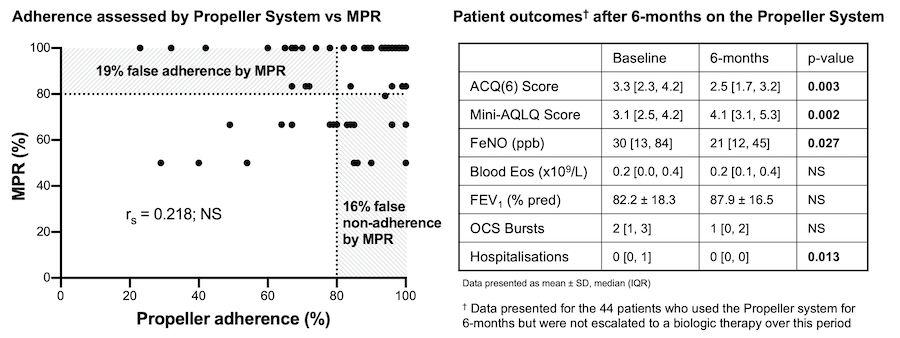Abstract
Assessing and optimising adherence remains a significant challenge in asthma management with suboptimal adherence leading to poor disease control and inappropriate treatment escalation.
Methods
100 patients within the Portsmouth and Manchester adult severe asthma services, whose asthma remained uncontrolled despite at least GINA step 4 treatment and optimal comorbidity management, were invited to use a digital self-management and adherence support tool combining inhaler sensors, patient App and portal (the Propeller health system).
Results
Of the 95 patients set-up with the system 68 (72%) were still using it at 6-months, with 46 (68%) achieving at least 80% adherence with their ICS/LABA treatment over this period. A poor correlation was demonstrated between the Medication Possession Ratio (MPR) and Propeller measured adherence (rs=0.218) with adherence status misclassified in 35% of patients using MPR alone. 24 (35%) patients were escalated to biologic therapy over the 6-months period. Significant improvements in asthma control, quality of life, T2 airway inflammation and unscheduled healthcare utilisation were seen in the remaining 44 patients using the Propeller system.

Conclusions
This study has demonstrated the challenges of using MPR to assess adherence and highlights the potential value of a positive adherence and self-management intervention in a clinical setting for patients with severe asthma.